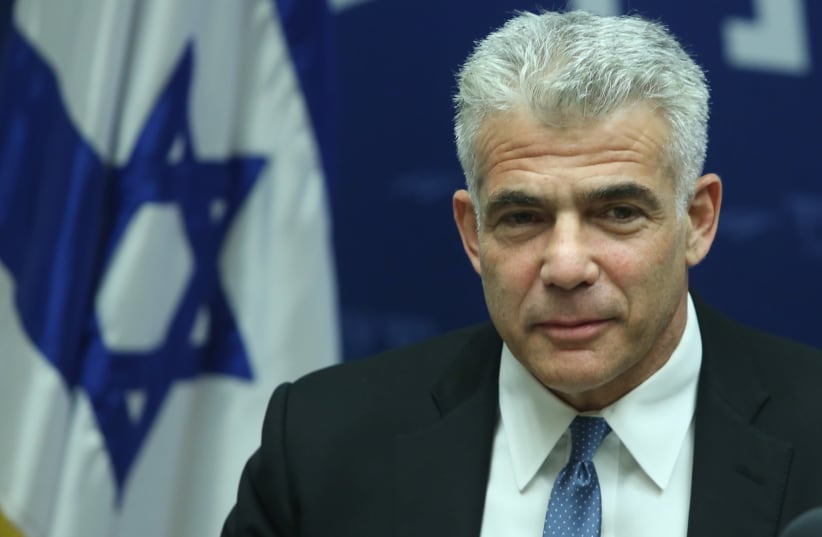If Yesh Atid leader Yair Lapid knows anyone in the office of US President Donald Trump’s son-in-law and senior adviser Jared Kushner, now is the time to give him or her a call. Because with Israelis now going to elections on April 9, one thing that could assist him in the campaign is if the Trump team – at long last – would roll out its peace plan.
Lapid would like nothing more than for this election to be about the American plan, and is surely trying to get hold of anyone he knows inside the administration to urge them to release it now.
His argument will not be that the Trump team should publish the plan to help him in the elections, of course, but rather that the administration – if it really wants the plan to actually succeed – should release it before the vote, forcing the parties to take a public stand and the Israeli electorate to choose.
Releasing the plan now could make the elections a referendum on it.
Though no one knows for sure what is in the oft-delayed plan, Trump administration officials have said clearly that there are elements that both sides will like, and elements which both sides will be unhappy with.
Trump himself said in a speech in August in West Virginia that since he moved the embassy to Jerusalem, it was now the Palestinians’ turn to get something big. Obviously, Prime Minister Benjamin Netanyahu is not going to want to go to the elections having agreed to a plan that gives the Palestinians any concessions, let alone something “big.” To do so would invite a pummeling from the parties on his right, such as Bayit Yehudi.
But Netanyahu, because of all that Trump has done for Israel in regards to moving the embassy to Jerusalem, withdrawing from the Iran nuclear deal, and giving unstinting support at the UN, could not reject the plan out of hand, just as he could not criticize Trump for his decision to remove the US troops from Syria – even though this is clearly inimical to Israel’s interests. Pressed against the wall, Netanyahu is likely to say to the plan, “yes, but.”
And if the parties who support the plan during an election campaign win a majority of seats in the Knesset, then the plan will be seen as having gained the legitimacy and backing of the Israeli public. Gaining that backing and legitimacy, Lapid will argue, is something that should be the goal of the administration if it is truly interested in the plan gaining momentum.
BUT IF THE US waits to roll it out until after the elections, then it is unlikely to be released until the summer, after the coalition wrangling winds down. Releasing it during the coalition negotiations would risk watering down its content since each potential coalition partner would make rejection or acceptance of one element of the plan a condition for joining the government.
Another argument Lapid could make in favor of releasing the plan before the elections, is that if the US waits until after a government is formed in the summer, then this will already starting bumping into the US election calendar. At that time it might not be politically wise for Trump to put forward a plan that calls on concessions from Israel, because that may not go down well with his Evangelical base.
So release it now, Lapid will say.
Whether Trump decides to sit on the plan until after the elections, or to release it now, he will be accused either way of meddling in the elections. If he waits, that will be seen as meddling on Netanyahu’s behalf; if he releases it, that will be interpreted as trying to hurt Netanyahu’s chances.
The conventional wisdom is that Trump has a very good relationship with Netanyahu and would prefer to see him back in office. But conventional wisdom also held that Trump would not remove America’s 2,000 troops from Syria and cede all say in that country’s future to Russia, Turkey and Iran.
Last week’s developments in Syria show that when it comes to Trump, counting on the conventional wisdom is not necessarily wise – which is why Lapid is probably hunting for people inside Trump’s inner circle to convince them to release the plan now.
